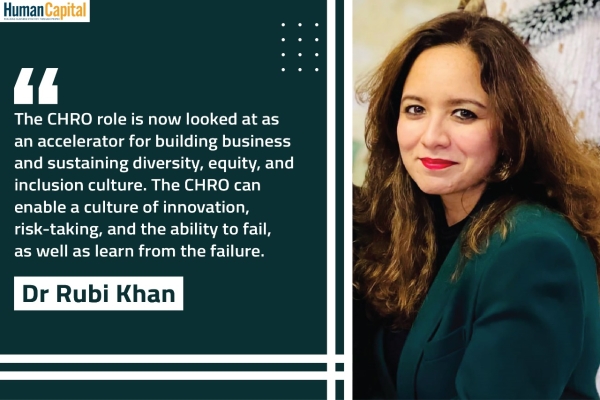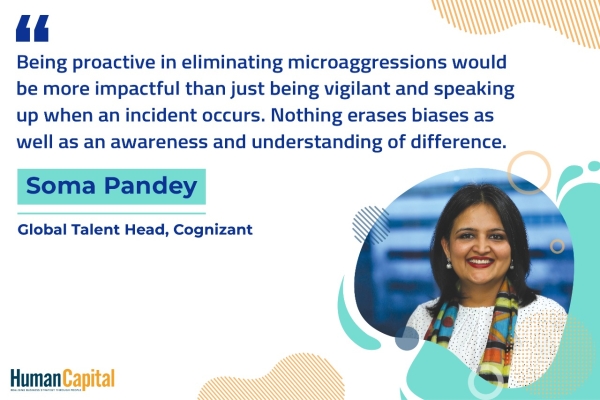For most managers that inhabit our workplaces, a great foundation at the start of their career often plays a defining role in the success that they are able to achieve over the long-term.
At the turn of the millennium, the stars aligned in more ways than one with the arrival of a strapping young man in tinsel town. Clad in a stylish leather jacket and riding a throbbing sports bike, he roared into the frame and a star was born in the Indian constellation. Welcomed by whistles and shrieks in cinema halls across the country, he immediately won a million hearts. Post the release of this romance-themed movie, 'Kaho Na Pyaar Hain', Hrithik Roshan was flooded by as many as 30,000 marriage proposals, apart from more than a few cherished awards! These were undoubtedly a testament to the impact he had managed to create on the big screen.
A Bollywood inspiration
For a nation that is forever in love with Bollywood and is looking for yet another star to worship, it was as if he had just descended from heaven. This belief also fit in well with the much-loved narrative of star-kids being born and silver-gloved into stardom. Many ascribed his huge achievement to the luck of having been born into one of Bollywood's well-established families. What many of the adulatory fans across the country missed was the hard work and guidance prior to this mega launch that had chiselled Hrithik into the star he had become.
But Bollywood is hardly considered to be a professional environment, for reasons we will not get into here. So, let us cut to the corporate world and look at the dynamics for those starting out. In the Indian landscape, education and work have traditionally seen as two separate phases in our lives. It is naturally assumed that only after completing one's academic journey would one embark into the professional sphere. By design, therefore, it implies that all that one must learn has to be imbibed during the span of one's years as a student, and after entering the workplace, one would be a practitioner — someone who would have the wherewithal to independently discharge his or her responsibilities effectively from the word 'go'.
Employment is the best education
To be fair, that is not an impediment that cannot be surmounted. And, to ratify this, one need not look any further than one of India's most iconic leaders, Azim Premji. Forced to cut short his studies at Stanford University upon the demise of his father, he took charge of Wipro in 1966 when he was only 21 years of age. In the decades that followed, he built it up into the multi-billion dollar global, diversified corporation that it is today.
While we do get inspired by his stellar achievements, I am sure we must also have the maturity to understand that leaders of such calibre are few and far between.
It is for reasons such as this that many leading organisations across the world focus on creating enabling programmes for new recruits and set them up for long-term success.
Unilever's 'Management / Executive Training Programmes' are legendary. Students from the best of business schools across the globe vie to get into these programmes, knowing that they represent a 'gold standard' as far as professional training is concerned. Many executives who have been fortunate enough to be burnished through these programmes have gone on to lead not only Unilever, but equally reputed organisations across the world.
The 'Oberoi Centre of Learning and Development' designed and operated by The Oberoi Hotels, is also another classic example of a 'Management Trainee' programme executed to perfection. Combining a mix of classroom and on-the-job training, it churns out hospitality professionals who hold their own, from New York to New Delhi.
Grooming them young
Programmes such as these successfully bridge the gap between the academic and the professional phases for those young entrants entering our workplaces and put them on a solid footing. So, what are some of the facets of such programmes that 'green the greenhorns'?
♦ Immersion in a structured programme:
A critical requirement of any such programme aiming to get your future leaders off to the right start is that it must be structured. There must be a defined programme charter that arises from the overall programme objective.
Depending on the requirements of the organisation, it must include critical dimensions and tracks to ensure that the right exposure is provided to those undergoing it. Rotation across the tracks provides the incumbents holistic learning about the business and builds their capabilities.
♦ Guidance from mentors:
One of the fundamental building blocks of a training programme like this should be the integration of mentors to support the development of the participants. The mentors should be identified from within or outside the organisation and assigned after careful deliberations.
Often, while the quality of mentors is very high, their inability to extract time from the busy schedules to support their mentees becomes a hurdle in driving success of the programme.
♦ Introduction to latest technologies and thoughts:
Given that the entire objective of a training programme like this is to prepare the next generation of leaders, it is essential to provide them unhindered access to the latest thoughts, practices end technologies in the space that the organisation operates in. It, therefore, also flows that the programme content and delivery pattern must continuously evolve.
♦ Exposure to challenging assignments:
Nothing great is achieved by remaining within one's comfort zone. And when it comes to the high-quality talent that is input into such a training programme, it is quite natural to expose each one of them to challenging assignments. This serves a dual purpose — it prevents them from sensing a feeling of boredom and also pushes them to extend the boundaries that have been established by the organisation till that point.
♦ Opportunity to go beyond the defined scope:
To try to truly take out the best from your future leaders, within the structure of the programme allow them to go beyond the defined charter. As you give them the confidence that they have the inherent capability to be game changers, you will see many more of them taking the initiative to go beyond the mandate and create newer avenues of success for the organisation.
It would be fair to say that Hrithik went through a similar 'training programme' in his formative years in his chosen field. In the years leading up to his debut film, he had learnt the business of the movies from the inside out. He had spent countless days in the film studio, playing multiple roles on the production side. From fetching tea to sweeping the sets, nothing was out of scope in the journey of learning. And, as he graduated to more deserving responsibilities, he was ably guided by the production house's team. Only after a few years of 'scrubbing in' under their watchful gaze, did he turn to face the camera. And a star was born 'overnight'.
In a similar manner, for most managers that inhabit our workplaces, a great foundation at the start of their career often plays a defining role in the success that they are able to achieve over the long-term. Therefore, if the above listed aspects are kept in mind while designing a management trainee programme, you can be rest assured that you will be able to create a pathway towards success for your young leaders. They may not be able to set the dance floor ablaze as well as Hrithik, but they will surely brighten up your organisation's future!

Do you look forward to permanently working from home after the pandemic subsides?
Trending
-
SBI General Insurance Launches Digital Health Campaign
-
CredR Rolls Out 'Life Happens' Leave For Its Employees
-
Meesho Announces 30-Week Gender-Neutral Parental Leave Policy
-
Microsoft Unveils Tech Resilience Curriculum To Foster An Inclusive Future
-
60% Indian Professionals Looking For Job Change Due To COVID: Survey
-
SpringPeople And Siemens Collaborate For Digital Transformation Push
-
86% Professionals Believe Hybrid Work Is Essential For Work Life Balance: Report
-
Almost 1 In Every 3 People's Personal Life Affected Due To Work Stress
-
Meesho Rolls Out Reset And Recharge Policy For Employees
-
80% Of Talent Leaders & Academics Say Pandemic Changed Skill Needs For Youth: Report
-
Hero Electric Rolls Out 'Hero Care' Program For Employees
-
Human Capital In Collaboration With ASSOCHAM Hosts Virtual Conference
-
IKEA India, Tata STRIVE Collaborate To Create Employability And Entrepreneurship Opportunities
-
SAP India, Microsoft Launch Tech Skilling Program for Young Women
-
DXC Technology, NASSCOM Collaborate For Employability Skills Program
-
Lenskart To Hire Over 2000 Employees Across India By 2022
-
Mindtree Launches Learn-and-Earn Program
-
Tata AIA Extends 'Raksha Ka Teeka' To Its Employees
-
Swadesh Behera Is The New CPO Of Titan
-
NetConnect Global Plans To Recruit 5000 Tech Professionals In India
-
Hubhopper Plans To Hire 60% Of Indian Podcasters By 2022
-
Corporate India Needs More Women In Leadership Roles: Report
-
Aon to Invest $30 Million and Create 10,000 Apprenticeships by 2030
-
Tech Mahindra Launches ‘Gift a Career’ Initiative for Upskilling of Youth
-
40% Women Prefer Flexible Working Options in Post-COVID World: Survey
-
3 out of 4 companies believe they can effectively hire employees virtually: Report
-
Vodafone , CGI and NASSCOM Foundation launch digital skills platform
-
Odisha: Bank, postal employees to deliver cash for elderly, differently-abled persons
-
Skill India launches AI-based digital platform for "Skilled Workforce"
-
Hiring activity declines 6.73% in first quarter: Survey
-
70% startups impacted by COVID-19 pandemic
-
Bajaj Allianz Life ropes in Santanu Banerjee as CHRO
-
Over 70 Percent MSMEs look at cutting jobs to sustain businesses
-
93 Per Cent employees stressed about returning to office post-lockdown
-
Johnson & Johnson India announces family benefits for same gender partners
-
Indian firms turning friendly towards working mothers
-
Welspun India names Rajendra Mehta as new CHRO
-
Wipro partners with NASSCOM to launch Future Skills platform



Human Capital is niche media organisation for HR and Corporate. Our aim is to create an outstanding user experience for all our clients, readers, employers and employees through inspiring, industry-leading content pieces in the form of case studies, analysis, expert reports, authored articles and blogs. We cover topics such as talent acquisition, learning and development, diversity and inclusion, leadership, compensation, recruitment and many more.
Subscribe Now












































Comment